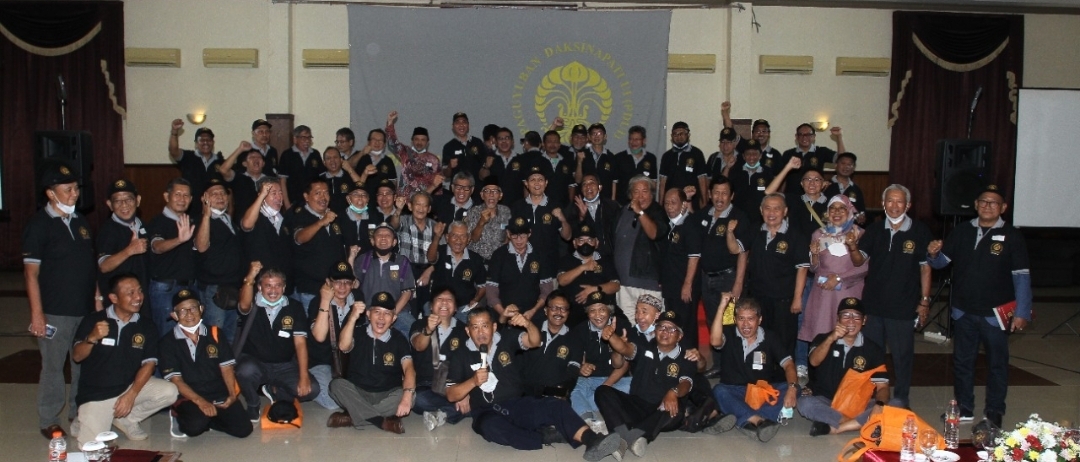Universitas Indonesia (UI), through the Faculty of Social and Political Sciences (FISIP), once again held an Open Doctoral Promotion Examination for Sani Siti Aisyah who is taking the Criminology Doctoral Study Program. She presented her dissertation titled “Penerapan Model Public-Private Partnership Menuju Operasionalisasi Lembaga Pemasyarakatan Secara Ideal di Indonesia” (Implementation of the Public-Private Partnership Model Towards the Ideal Operationalization of Correctional Institutions in Indonesia) at the Juwono Sudarsono Auditorium, FISIP UI Depok Campus, on December 9, 2024.
This dissertation presents a solution for creating safe, humane, and productive correctional institutions (Lapas) through collaboration between the public and private sectors. This research is motivated by the increasing popularity of Public-Private Partnership (PPP) in the development and management of prisons. PPP is an agreement or contract between the government and the private sector to carry out government tasks within a certain period of time. This case study is often studied from an economic perspective that prioritizes state budget efficiency, but is rarely studied from a social perspective that prioritizes benefits for the community in the context of social control.
Sani realized that PPP has positive potential in creating friendly and inclusive prison conditions as a prerequisite for ideal prison operationalization amidst limited human resources and budget. This study examines various prison PPP models using the framework of realist criminology theory and correction theory. “This study was designed as an exploratory qualitative study using interview methods with 14 informants (policy makers, prison practitioners, and private partners), using document studies with field observations in 7 prisons that have cooperation with the private sector and FGD (Forum Group Discussion) with 10 experts consisting of academics, members of the DPR, policy makers, and practitioners,” said Sani.
Based on the analysis of private sector involvement in prison development and operation, Sani has succeeded in identifying five prison PPP models, namely: the “Tata kelola swasta” (Private governance) model that has been implemented in the United States, England, Australia, Canada; 2) the “Manajemen hibrida” (Hybrid management) model that has been implemented in Japan and France; 3) the “Manajemen hibrida terbatas” (Limited hybrid management) model that has been designed by Indonesia; 4) the “Infrastruktur layanan” (Service infrastructure) model that has been implemented in Australia and Canada; and 5) the “Contracting out fungsi terbatas tertentu” (Contracting out certain limited functions) model that has been implemented in the UK and Indonesia. The classification of prison models is divided based on indicators of correctional services, accommodation services, administration, and management.
“The diversity of prison PPP models is based on the diversity of the implementation process of each model which contains political and instrumental considerations. The prison PPP model that has the potential to create safe, humane, and productive prison conditions is the prison PPP model that does not allow private involvement in the administration and management aspects of the prison as well as in the custody aspect in correctional services,” said Sani. Sani also emphasized that several determinant factors must be considered in determining the prison PPP model to meet the operational feasibility requirements, namely the constitutional ideology factor, the goal or philosophy of correction factor, the needs factor, and the budget factor.
This dissertation can provide academic recommendations and strategic policies related to the implementation of the Public-Private Partnership (PPP) model in the management of correctional institutions. Academic recommendations cover three aspects, namely further research on the quality of prison life (Order, amenities, and service), the use of critical criminology theory to study prison culture, and the use of prisoners as interview informants in prison cooperation studies with the private sector. In Indonesia, the “Manajemen hibrida terbatas” (Limited hybrid management) model is suitable for medium security prisons and minimum security prisons (open prisons) which focus on the operationalization of industry to provide prisoners with work skills. For this reason, special regulations are needed that can be used as technical guidelines for implementing the PPP prison model in the context of Public-Private Cooperation (KPBU) for prisons in Indonesia.
Sani Siti Aisyah successfully received a very satisfactory predicate after defending her dissertation in front of the following chair, promoter, and co-promoter Prof. Dr. Iwan Gardono Sudjatmiko; Prof. Drs. Adrianus Eliasta Meliala, M.Si., M.Sc., Ph.D; and Dr. Iqrak Sulhin, M.Si. The examining team consisted of Prof. Dr. Yusti Probowati, Prof. Dr. Irfan Ridwan Maksum, M.Si., Prof. Dr.der.Soz. Rochman Achwan, MDS., Dr. Ni Made Martini Puteri, M.Si., and Prof. Dr. Muhammad Mustofa, M.A.



